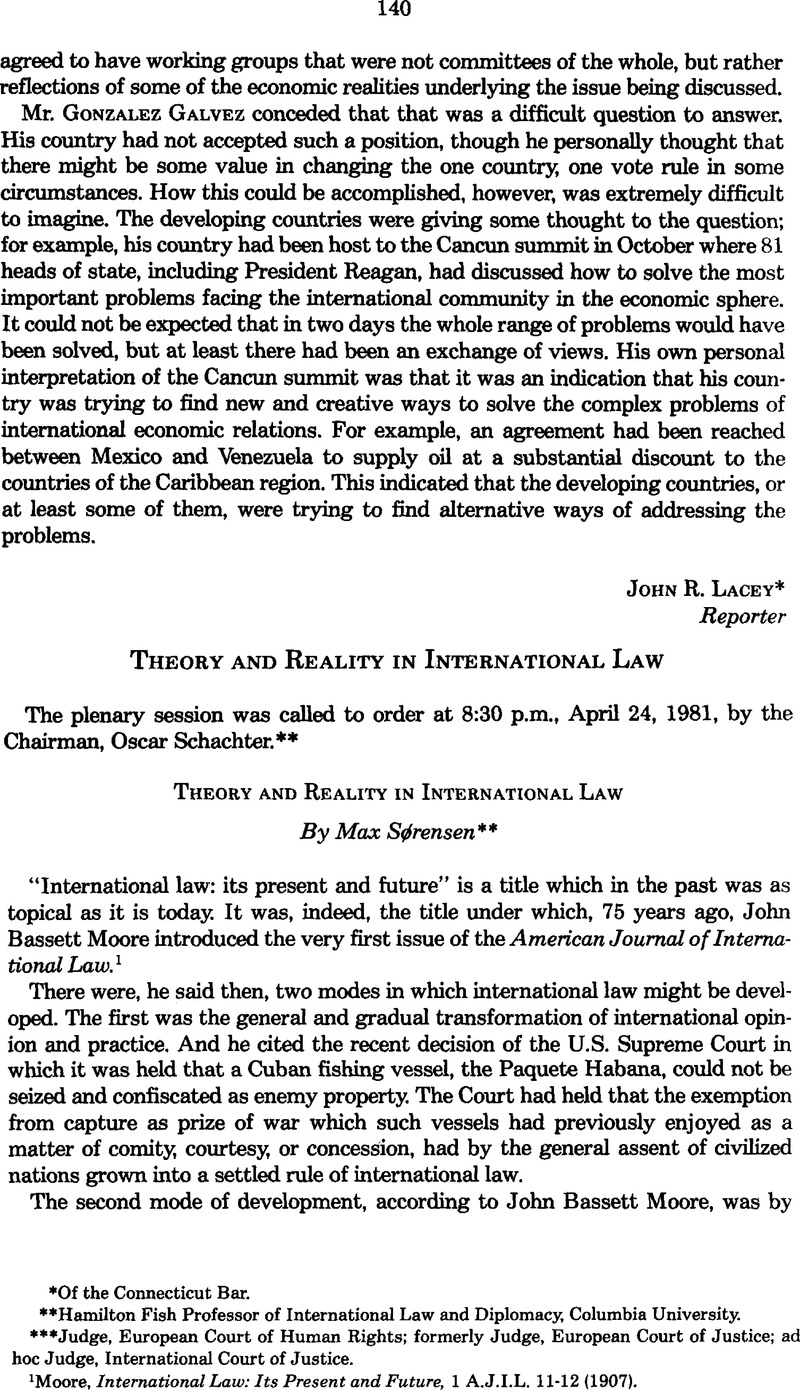No CrossRef data available.
Published online by Cambridge University Press: 28 February 2017

1 Moore, International Law: Its Present and Future,1 A.J.I.L. 11-12 (1907).
2 The cultural factors have been studied in particular by Adda B. Bozeman in The Future of Law in a Multi-cultural World (1971), and On the Relevance of Hugo Grotius and De Jure Belli ac Pacis for our Times, in i Grotiana, at 65-124 (1980).
3 H.L.A. Hart, the Concept of Law, at Chapter 5, Law as the Union of Primary and Secondary Norms(1961).
4 I have briefly analyzed the drafting history of Article 38 inLes Sources du Droit International, at 30-33 (1946).
5 R. Falk, the Status of Law in International Society, at 9 (1979).
6 Id.,at33.
7 The Effectiveness Of International Decisions, (S. Schwebel ed. 1971).
8 See in particularFitzgerald, in id,at 201-03, 365 and 379-82.
9 Henkin, Resolutions of International Organizations in American Courts, inEssays on the Development of the International Legal Order In Memory of Haro F. VAN Panhuys (F. Kalshoven, P. Kuyper and J. Lammers ed. 1980) at 199-211.
10 U.S. Court of Appeals, 2d Cir., June 30,1980, Filartiga v. Pefia-Irala, note in75 A.J.I.L. 1981 p. 149-53.
11 See Albert Bleckmann in34 Zaorv 1974 p. 112-32, Bundesgerichtshof Judgment June 22, 1972.
12 SeeLauterpacht inThe Effectiveness, supran. 7, at 57-65.
13 R. Fisher, Points of Choice (1978), at 30.
14 Schachter, Towards a Theory of International Obligation, inThe Effectiveness, supran. 7, at 9-31.
15 H. Kelsen, Principles of International Law, at 304 (1952); G. Tunkin, Theory Of International Law (W. Butler trans.), at 161 (1974), and General Theory of Sources of International Law,in 19 Indian J. OF Int'l L., at 474-82 (1979).
16 [1951] I.C.J, at 131.
17 [1974] I.C.J, at 23.
18 Eduardo Jimenez de Arechaga, International Law in the Past Third of a Century,Recueil Des Cours, Academie de Droit International de la Haye, 1978, I, 1-343, at p. 24; Tanaka, dissenting opinion i nthe North Sea Continental Shelf cases, [1969] I.C.J, at 175-178.
19 Schachter, supran. 14, at 30: “legal obligation—whether national or international—may involve “degrees” and [that] it will depend on attitudes, expectations and compliance.” Tunkin, in19 Indian J. Int'l L. 482 (1979), speaks of certain resolutions of international organizations being “only partially legal.”